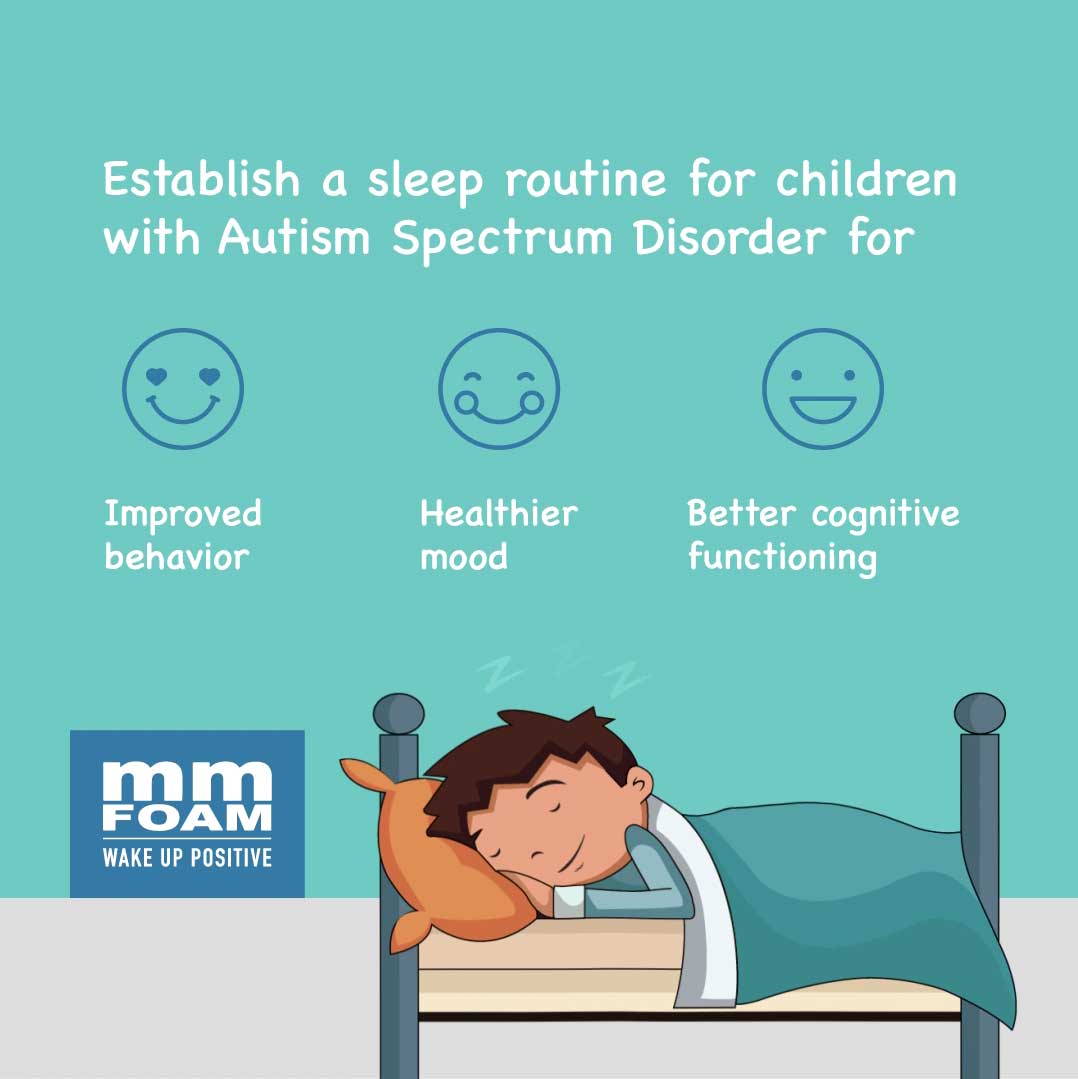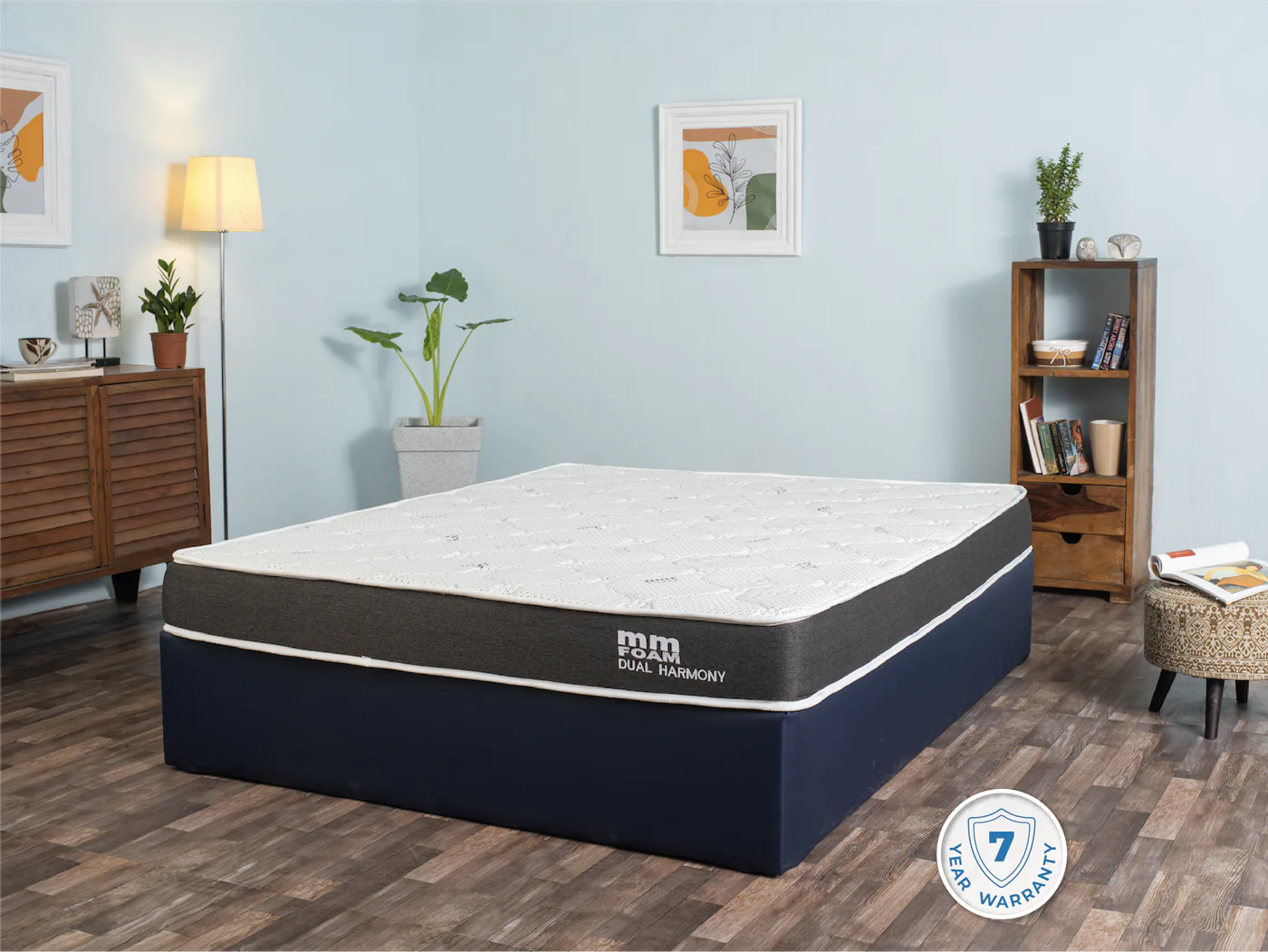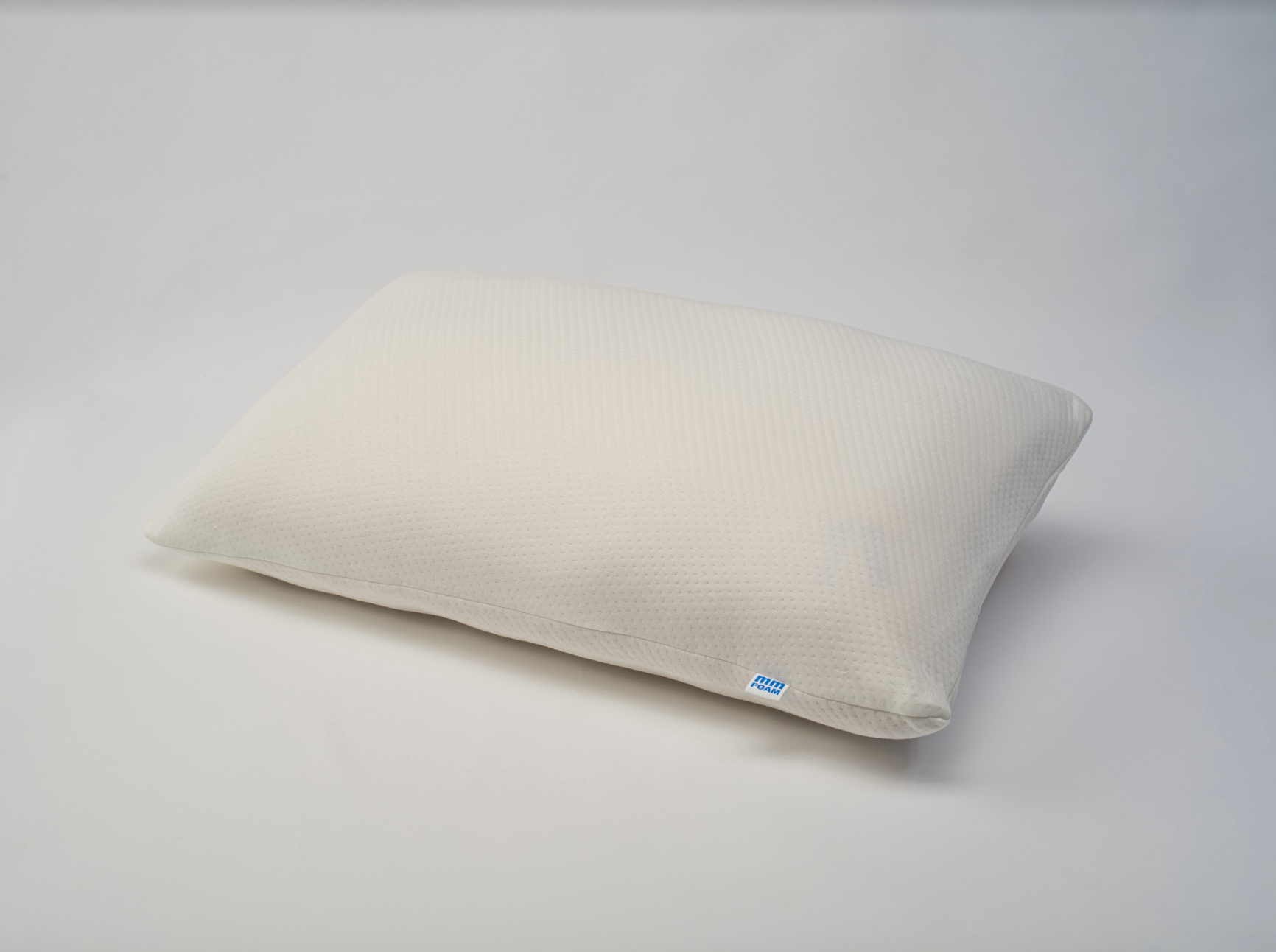Your cart is empty
Looks like you haven't added anything to your cart yet

Importance of establishing a consistent sleep routine for children with ASD
Autism Spectrum Disorder (ASD) is a complex developmental disability disorder that affects communication, social, behavioral skills at various levels. In recent years, there has been a drastic increase in the prevalence of autism spectrum disorder across the world. As per WHO, 1 in 100 children suffer from autism spectrum disorder worldwide.
Children with autism spectrum disorder suffer from varied symptoms and, among them, sleeping troubles are most common. A recent 2021 study confirms that children with ASD have a higher incidence of various sleep problems like bedtime resistance, sleep onset delay and sleep anxiety.
Establishing a consistent sleep routine is quite challenging for kids with autism spectrum disorder. Increased sensory activity, anxiety, and other systemic symptoms like gastric troubles create an obstacle in setting a consistent sleep-routine. These things lead to a stressful situation not only for kids but for parents and caretakers as well.
What is the importance of sleep for children with ASD? What are the factors that affect sleep in children with ASD? And what are some ways to establish a consistent sleep routine in children with ASD? Read on to know more!
What is the importance of sleep for children with ASD?
Sleep is an important aspect of overall well-being for everyone, and it is even more crucial for children with autism spectrum disorder. A good night’s sleep improves their mood and behavior and has a positive impact on their overall quality of life, while persistent sleeping troubles cause various adverse symptoms, such as exacerbation in ASD symptoms, daytime irritability and repeated behavior. Research shows that sleeping troubles in kids with ASD leads to poor social skills and affects their academic performance negatively. Hence, the biggest benefit of quality sleep is that it improves the learning skills, social skills, and the academic performance of children with ASD.
Factors that affect sleep in Children with ASD
Though researchers are not sure what are the exact causes or factors that cause sleeping troubles in kids with ASD; here are some common factors that affect sleep quality in children with ASD.
- Increased sensitivity to various stimuli like sound, light, etc.
- The presence of other mental health issues like anxiety, depression and ADHD.
- Other systemic symptoms, like gastric issues, cause sleep disruption in children with ASD.
- Sleeping disorders like obstructive sleep apnea are also common in children with ASD, which leads to sleeping disturbances and poor sleep quality.
Tips for establishing a consistent sleep routine for children with ASD
Here are some practical tips for establishing a consistent sleep routine for children with ASD.
Establish a consistent bedtime and wake-up routine
Routines work great for children with ASD. It helps them prepare well for what to expect next. Thus, as a basic step, it is important to set a fixed bedtime and wake-up time for bringing consistency to their sleep routine. This also set their body’s circadian cycle in tune, and with consistent practice, they would be able to sleep and wake up at the same time each day.
Creating a calming bedtime routine (taking a shower, reading a book, etc.)
Creating a calming bedtime routine is the second important step for establishing a consistent sleep routine for kids with ASD. include some relaxing activities like taking a shower, brushing their teeth and reading a storybook together in their bedtime routine. Make sure to keep the routine short and simple and follow the selected activities regularly.
If you want, you can use visual cues (charts, flashcards, etc.) to make the sleep time routine interesting and easier for kids with ASD. Children with ASD give better responses to visual clues than verbal ones.
Minimize screen time before bed
Keeping your kids engaged with gadgets until they get tired might seem like an easy way to make them fall asleep. However, it is not a healthy sleep habit. It can lead to various sleeping troubles in the longer run. Therefore, it is important to minimize screen time before bed for kids with ASD. Setting firm boundaries and following this rule diligently helps a lot in establishing a consistent sleep routine for children with ASD.
Making the bedroom environment a comfortable and sensory-friendly environment
Children with ASD have increased sensory activity. They have an increased and quick response to various stimuli, like light and sound. These things can easily disturb their sleep and may keep them awake the entire night. Hence, it is important to make the bedroom comfortable and establish a sensory-friendly environment for kids with ASD. Keep the room temperature at an optimum level. Using dark curtains or blinds to create a dark and quiet sleeping environment works great in getting them a restful sleep at night.
Avoid using stimulants (caffeinated drinks, sugary snacks, etc.) before bedtime
This is another important thing to keep in mind. Stimulants like caffeinated drinks or sugary snacks cause overstimulation of the nervous system and leads to sleeping troubles at night. Thus, avoid using them in the later part of the day for kids with ASD. Instead, give them sleep-promoting snacks like bananas or a warm glass of milk, which helps relax the body and promotes good quality sleep.
Include age-appropriate physical activities in their routine
Physical activities play a vital role in improving our sleep quality. Hence, including age-appropriate physical activity in the daily routine for children with ASD. 30 minutes of indoor or outdoor exercise can help a lot in improving their sleep quality and help them sleep on time. Remember, avoid strenuous physical activity just before bedtime, as it will make them overtired and may cause increased sleeplessness.
Consult with a healthcare professional if necessary
If your child is suffering from persistent sleeping trouble for a longer duration, then it could be because of any sleep disorder like obstructive sleep apnea. In that case, it is important to take professional medical advice. Consulting with a healthcare professional helps in making a proper diagnosis and treatment of existing conditions on time.- Choosing a selection results in a full page refresh.









